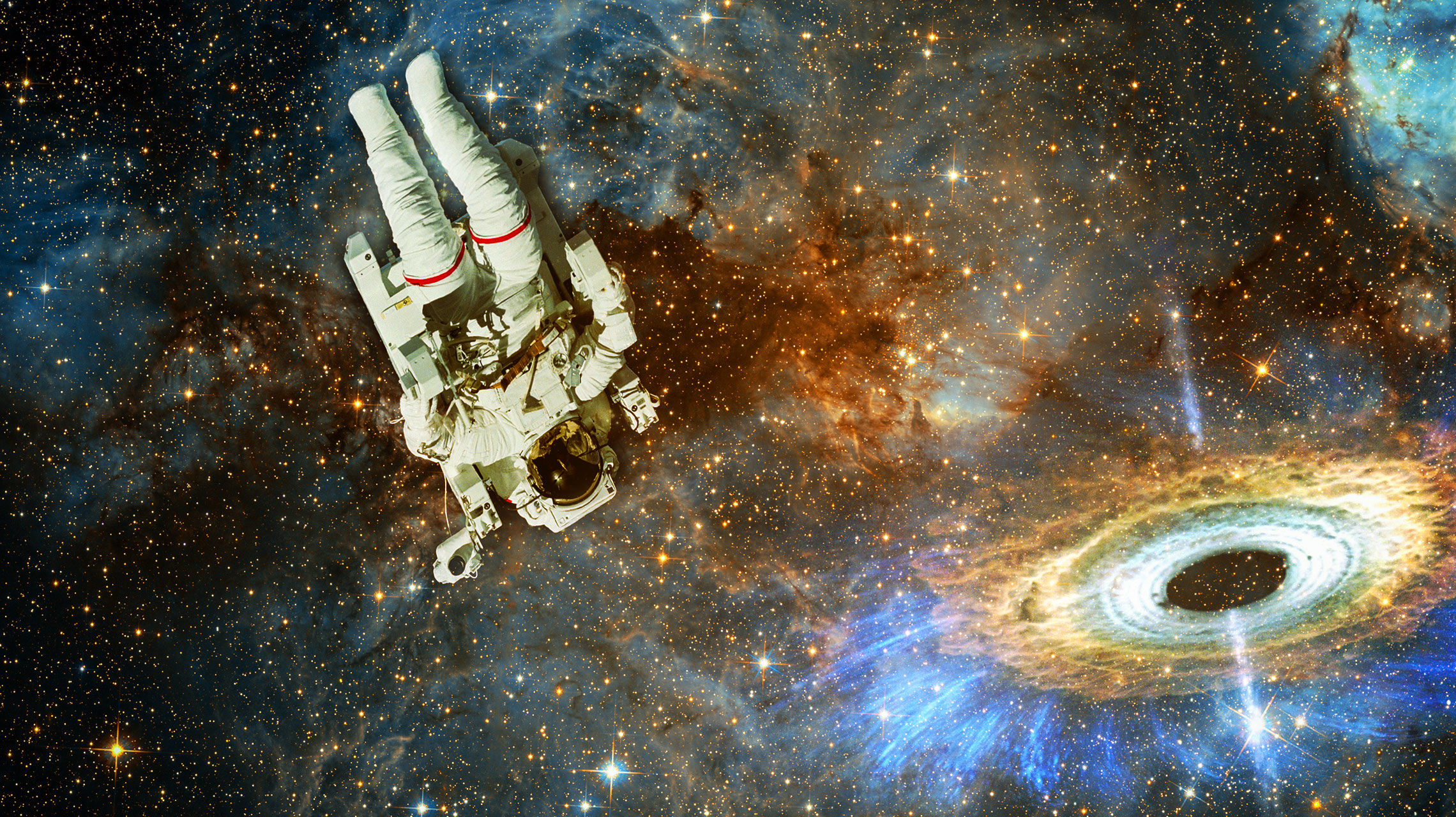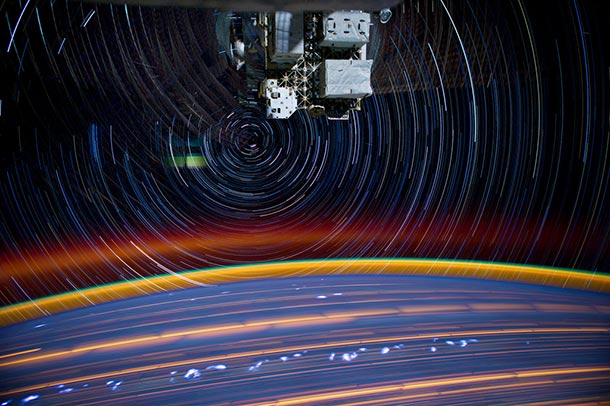Create a free profile to get unlimited access to exclusive videos, sweepstakes, and more!
Psychedelic space station stars and cities

The view from the International Space Station is always pretty cool, but when an astronaut points the camera at the Earth's horizon and takes a series of short exposures, adding them together gives a view right out of Haight-Ashbury in the 1960s:
[Click to psilocybinate.]
Whoa, man!
Astronaut Don Petit took the pictures to make this composite. Basically, it's a series of eighteen 30-second exposures added together so the motion of the ISS around the Earth makes the stars trail, the cities blur, and your mind expand, dude.
The brown and green glow over the horizon is the atmospheric aerosol layer; molecules that absorb sunlight during the day and release that energy at night. The red glow above that puzzles me; I've written about it before. It might be a reflection of lights from inside the space station, but I suspect it's actually the aurora; it follows the curve of the Earth, and as you can see from the star trails the camera was pointed toward the poles -- the direction you're likely to see an aurora.
Y
ou can see faint star trails above the bright ones too, with a different center of curvature -- those probably are from an internal reflection. Either that or the camera got moved, but that seems unlikely! Several people pointed out to me that the fainter trails above the stars are from the solar panels. I should've realized that myself!This picture is one of several posted to Flickr, including this one which looks like it's from the last scene of "2001: A Space Odyssey". But they're all worth looking at, if only for their alien beauty.
After all, the photographer was literally high when he took them!
Image credit: NASA
Related Posts:
- Space Station star trails
- Southern lights greet ISS and Atlantis
- ATV docks with the ISS (this is a must-see picture!)
- Flying around the Earth



























